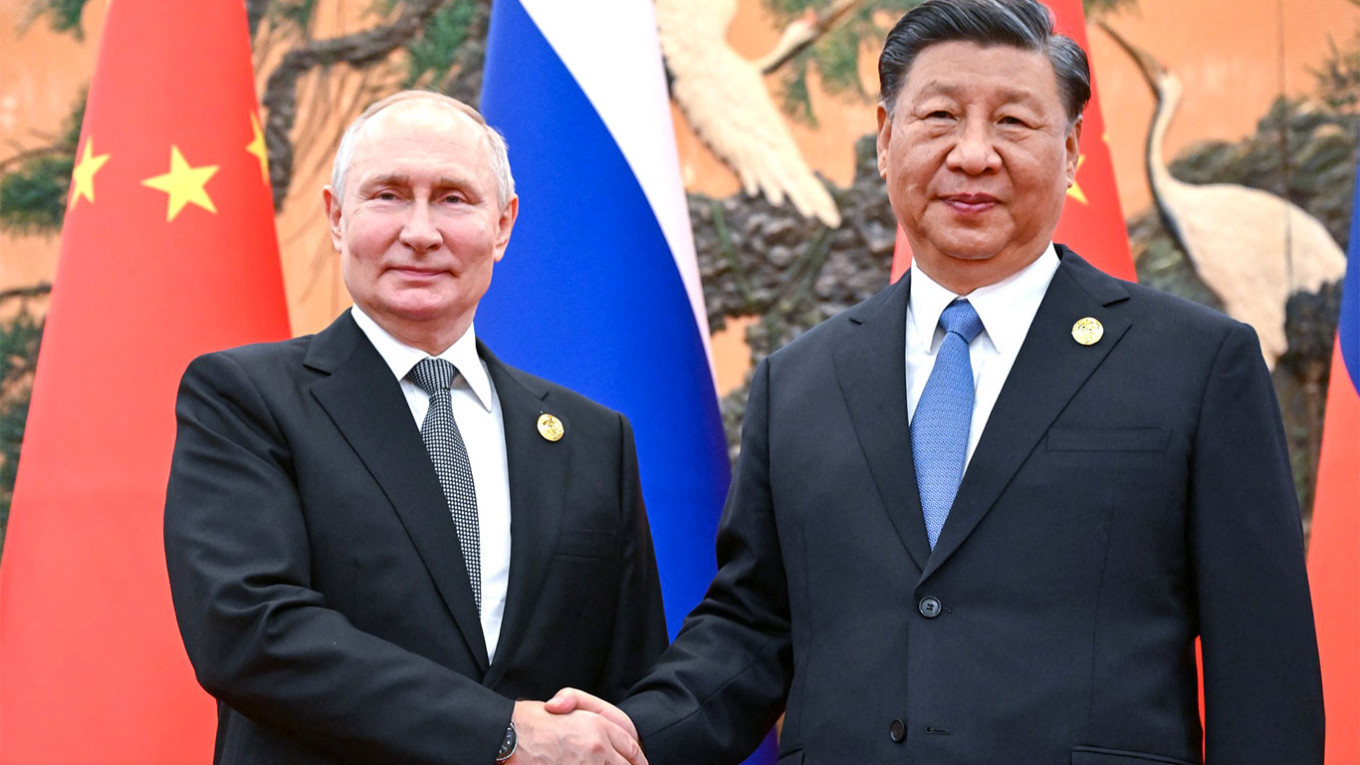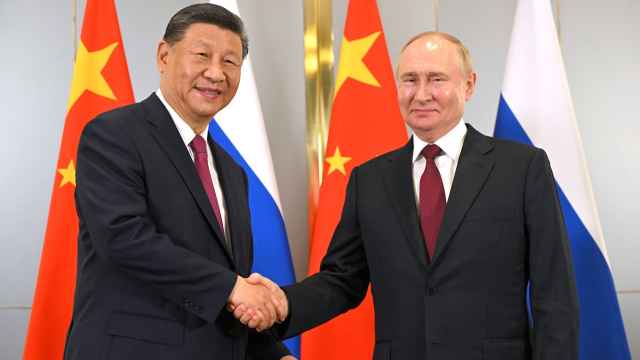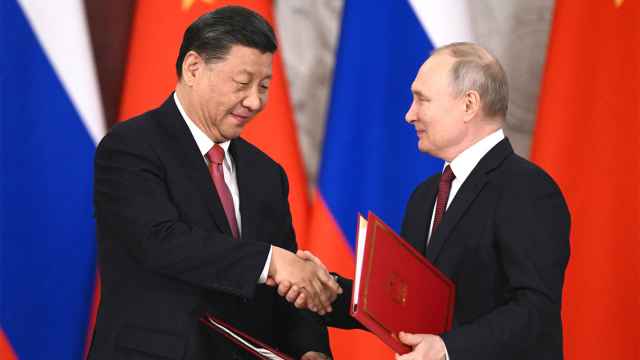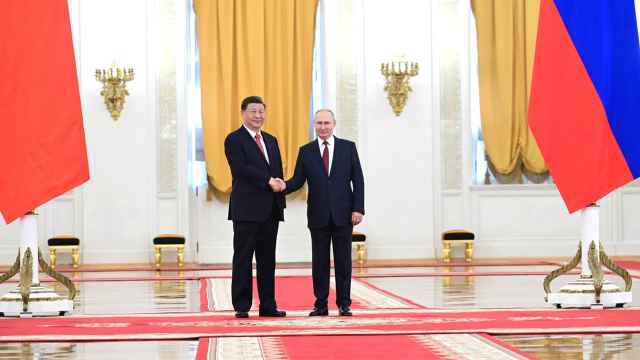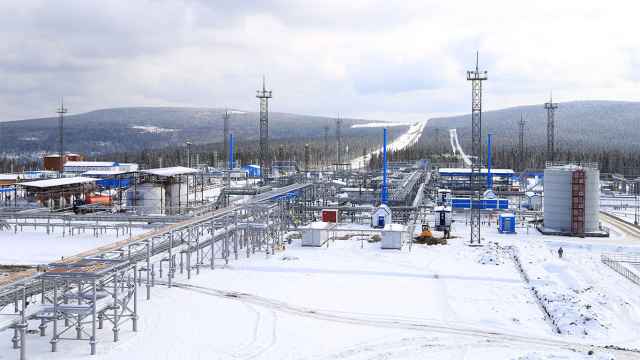Russian President Vladimir Putin on Thursday praised the "unprecedented" energy cooperation between Moscow and Beijing, as the Kremlin seeks to strengthen its Asian partnerships to make up for the loss of the European market.
Russia has been hit by massive Western sanctions over its Ukraine offensive, with Europe trying to end its energy links with Moscow.
Putin wrapped up a two-day visit to China on Thursday, his first outside the former Soviet Union this year.
"Relations in the overall partnership and strategic cooperation between the Russian Federation and the Chinese People's Republic have reached an unprecedented high level and continue to develop dynamically," Putin said in a statement addressing a Russian-Chinese energy forum in Beijing.
"One of the key areas of this relationship is energy cooperation, which is becoming increasingly active," he added.
The head of Russian oil company Rosneft, Igor Sechin, told the forum that "over 75%" of Russia's exports to neighboring China are energy-linked.
"This year, Russian gas exports to China will reach a historic maximum — more than 30 billion cubic meters of gas will be delivered," the Putin ally added.
Sechin said that Russia was China's main oil supplier in 2023, overtaking Saudi Arabia.
Heavily sanctioned by the West — particularly in oil where the G7, the European Union and Australia have imposed a price ceiling on Russia's exports — Moscow has for months tried to redirect deliveries to Asia, even if it means selling it at a discount.
Moscow hopes to start building the "Power of Siberia 2" pipeline from Russia to China next year, a huge project to deliver more natural gas to Beijing.
A Message from The Moscow Times:
Dear readers,
We are facing unprecedented challenges. Russia's Prosecutor General's Office has designated The Moscow Times as an "undesirable" organization, criminalizing our work and putting our staff at risk of prosecution. This follows our earlier unjust labeling as a "foreign agent."
These actions are direct attempts to silence independent journalism in Russia. The authorities claim our work "discredits the decisions of the Russian leadership." We see things differently: we strive to provide accurate, unbiased reporting on Russia.
We, the journalists of The Moscow Times, refuse to be silenced. But to continue our work, we need your help.
Your support, no matter how small, makes a world of difference. If you can, please support us monthly starting from just $2. It's quick to set up, and every contribution makes a significant impact.
By supporting The Moscow Times, you're defending open, independent journalism in the face of repression. Thank you for standing with us.
Remind me later.


